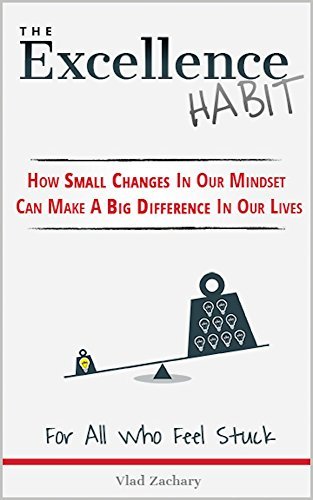
Mini Habits: Smaller Habits, Bigger Results
Book Description
Transform your life without the overwhelm. In "Mini Habits: Smaller Habits, Bigger Results," Stephen Guise unveils a revolutionary approach to personal change that starts with the tiniest of actions. No grand plans or massive goals are necessary; instead, it’s about seizing the power of incremental progress. With each small habit, momentum builds, leading to astonishing results and newfound confidence. Experience the thrill of success as ordinary moments become extraordinary breakthroughs. Ready to discover the power of simplicity in a world that demands more? What if the smallest steps could lead to your biggest achievements?
Quick Book Summary
In "Mini Habits: Smaller Habits, Bigger Results," Stephen Guise transforms the traditional approach to habit formation. Eschewing the complexity and intimidation of large-scale changes, Guise advocates for making personal progress with habits that are intentionally and almost absurdly small—so easy that failure seems impossible. This mini habit strategy is rooted in neuroscience and behavioral psychology, leveraging the power of consistent action to bypass internal resistance and self-sabotage. Through practical examples and an accessible plan, the book demonstrates how achieving even the smallest goals consistently will accumulate into significant, lasting transformation. Ultimately, Guise empowers readers to take action with confidence and simplicity, revealing that true personal change starts with the smallest possible step.
Summary of Key Ideas
Table of Contents
The Science Behind Small Habits
Guise begins by explaining how our brains respond to new habits and why traditional, ambitious goal-setting often backfires. By setting large goals, people trigger inner resistance and struggle with motivation when willpower wanes. Mini habits, in contrast, are so tiny—like one push-up or writing a single sentence—that they can be completed even on a bad day. This method leverages the brain’s preference for success and rewards, creating a positive feedback loop that encourages repetition.
Lowering Barriers to Action
A key principle in the book is to make actions too small to fail. Guise discusses how lowering barriers eliminates excuses and psychological resistance, making it almost automatic to complete the habit daily. He emphasizes that while the mini action is the requirement, there are no restrictions on doing more. Often, starting with a mini habit leads to doing much more, thanks to momentum. This practice shifts focus from the outcome to the process, reducing the all-or-nothing mentality that sabotages change.
Building Momentum Through Consistency
Consistency is highlighted as the engine behind habit formation. Even the smallest habits, when performed daily, accumulate into substantial change over time. Guise uses real-world stories and research to show how mini habits can sidestep perfectionism and procrastination, fostering reliable progress. He explains that the act of showing up matters more than the volume of effort. The real breakthrough comes from unbroken chains of small successes, rewiring the brain for long-term habit adoption.
Transforming Identity and Self-Efficacy
An important benefit of mini habits is the impact on self-identity and confidence. By succeeding every day, no matter how small the effort, readers experience themselves as consistent, successful individuals. This consistency builds self-efficacy and gradually transforms one’s self-perception, making more demanding goals feel attainable. Small wins become a foundation for greater achievements, coaching the brain to expect success and reinforcing positive behaviors.
Sustaining Long-Term Growth
Guise concludes by advocating for sustaining mini habits indefinitely, rather than viewing them as short-term hacks. The cumulative effects become visible as mini habits layer and grow, creating lasting change in behaviors, productivity, and mindset. Readers are encouraged to start with one mini habit, track progress, and add new ones as confidence builds. The simplicity and sustainability of the mini habit approach offers a realistic, science-backed pathway for anyone seeking personal growth without overwhelm.
Download This Summary
Get a free PDF of this summary instantly — no email required.





